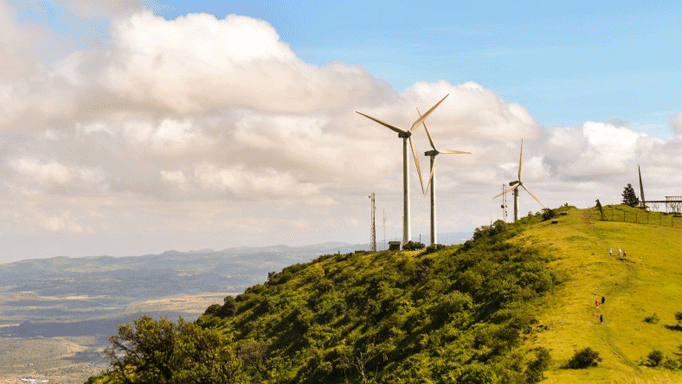Following a successful pilot in Trieste in the summer, the Electricity Transition Playbook, led by Climate Compatible Growth (CCG), has been made available as a practical course delivered via the Open University.
It features nine areas for governments to focus on as they switch to electric energy. They include policy and law, finance, enabling technologies and network infrastructure.
It also provides a progressive scorecard which allows each nation to measure its readiness for transition. And has a community of growing knowledge – made up of academics and experts – to share best practice and support each other.
Professor Mark Howells, of Loughborough University, said: “After a successful trial in Trieste Summer School, the Electricity Transition Playbook was showcased at COP28 and will now be part of the various training course brought to the scientific community by the Climate Compatible Growth Programme in alliance with multiple organisations including the Green Grids Initiative.”
It is widely agreed that clean electricity will play a major role in meeting global energy needs in the future. However, there are many barriers to overcome before this potential can be realised. And we must overcome them together.
Right now, annual investment in grids globally is just $300bn when it needs to be $600bn by 2030. Within Emerging Markets and Developing Economies it’s just $70bn but needs to be $300bn by 2030, to be on track for the 1.5ºC target. This may seem a lot, but the cost of delay will be in the trillions.
In order for nations to meet their sustainable development goals, they have to overcome a wide range of challenges including collecting data, developing energy modelling skills and changing policy.
On top of this, they have to convince colleagues that the energy agenda can support other vital developments such as economic growth, employment, education and health. Then they must convince potential investors to fund them.
The starting point for joining the ETP community is a free online course taken via the Open University. This will deliver state of the art knowledge to you and your team on the building blocks of electricity transitions.
Following this, in person training at the CCG Summer School and Energy Modelling Platforms will take your plans to next level as you work with experts in the ETP community who are all facing similar challenges. Becoming part of ETP will enable your team to be at the forefront of the electricity transition.
It is a practical guide to help you navigate through the complex journey of the electricity transition. It’s a tailored approach to shape the electricity landscape of each nation. It features nine interconnected building blocks of electricity transition with resources for each.
It provides a Progressive scorecard to empower each nation to measure its readiness for transition. And it has a community of growing knowledge to share best practice and support each other.
In 2021, the University launched a new multi-million-pound research centre to help support vulnerable populations in the Global South shape and benefit from the transition to sustainable energy.
One of the core objectives of the Centre for Sustainable Transitions: Energy, Environment and Resilience (STEER) is to work with partners across the world, from decision-makers to energy-poor communities, to make the United Nations’ Sustainable Development Goal (SDG) 7 a reality.
In addition to its world-leading research in this area, Loughborough University also offers two cutting-edge master’s programmes on which students are able to learn the skills that STEER is using to shape global agendas and influence policy today: Climate Change Politics and Policy MA and Climate Change Science and Management MSc.
For more information on CCG’s Energy Modelling Platform Summer Schools, please visit: https://climatecompatiblegrowth.com/emp-a-2024/
